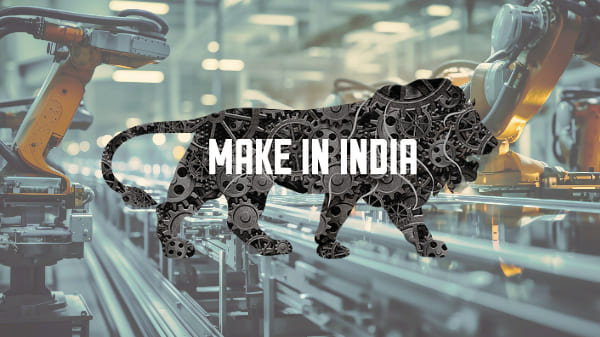The Impact of Global Supply Chains on India's Manufacturing

Global supply chain dynamics are reshaping India’s manufacturing landscape, especially in the metal forming industry. As manufacturers navigate the complexities of a shifting global marketplace, understanding these changes is crucial to maintaining competitiveness and growth.
The COVID-19 pandemic exposed vulnerabilities in global supply chains, causing significant disruptions across industries. In response, many companies are reassessing their sourcing strategies. According to McKinsey, 93% of executives are now considering reshoring or nearshoring to mitigate risks and increase supply chain resilience. This shift towards local production has accelerated, driven by rising geopolitical tensions, trade uncertainties, and the need for more sustainable practices.
Implications for the Metal Forming Industry
For India’s metal forming sector, this shift presents both challenges and opportunities. On one hand, the push for local sourcing and production may lead to increased competition, downward pressure on prices, and a more competitive domestic market. On the other hand, it opens significant opportunities for Indian manufacturers to capture market share, build stronger relationships with local suppliers, and position themselves as reliable alternatives to global supply chain disruptions.
India's "Make in India" initiative aligns perfectly with this trend, offering further incentives for companies to localize production and reduce dependency on foreign suppliers. In fact, the metal forming industry stands to benefit greatly, as demand grows for locally sourced components in industries like automotive, aerospace, and heavy machinery.
Globally, companies like General Motors and Siemens have already begun localizing key parts of their supply chains, reducing reliance on overseas suppliers and shortening delivery timelines. Indian companies are following suit. Tata Motors, for instance, has strengthened its local supply base, reducing its dependency on imported parts.
India’s manufacturing sector is expected to contribute around 25% of the country’s GDP by 2025, driven in part by the rise of localized supply chains and enhanced manufacturing capabilities. For the metal forming industry, this presents an opportunity to integrate AI-driven technologies, streamline production, and build a more resilient supply chain network.
Metal Forming Expo in Pune: A Platform for Solutions
The upcoming Metal Forming Expo in Pune will showcase innovations and solutions that address these global supply chain challenges. With a focus on local sourcing, AI applications, and advanced manufacturing technologies, the event offers a platform for industry leaders to explore new strategies, foster partnerships, and gain insights into how they can adapt to the evolving supply chain landscape.